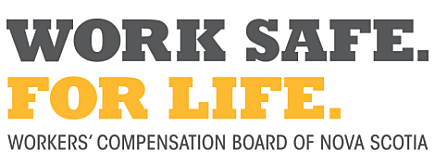New ad campaign from WCB Nova Scotia aims to shift perceptions about recovering from a workplace injury
Safe, healthy work can often be part of recovery from workplace injury, and a new ad campaign launching this week reminds Nova Scotia’s workers and employers that “Getting back is part of getting better.”
Developed by WCB Nova Scotia in partnership with the other Atlantic workers’ compensation organizations, the campaign is one part of their ongoing work to reduce the significant human and economic impacts of workplace injury in the region.
In 2021, 5,391 Nova Scotians lost time from work due to their injuries, contributing to the total of 1,078,534 working days that were lost to workplace injury that year. This works out to 2,955 person-years, or nearly the entire town of Port Hawkesbury being off work for a year.
“Workplace injuries can drastically change lives, and in addition to the health impacts of the injury itself, disconnecting from work can take a compounding and significant toll on workers, their families, and our communities,” says Dennita Fitzpatrick, Vice President of Prevention and Return to Work for WCB Nova Scotia.
Fitzpatrick hopes the new campaign will help raise awareness and spark conversations about the importance of compassion and support to help workers remain connected to their workplace after an injury.
“Every workplace injury is different, and recovery looks different for everyone, but one of the things we know is workers who stay at or connected to a supportive workplace suffer fewer complications and recover faster,” she says. “To change the impact of workplace injury in our province, we need to shift our thinking about the role work plays in recovery.”
She adds that in a time of such incredible demands on the workforce, doing all we can to help workers recover has never been more critical – most importantly, for the worker themselves.
Dr. Leisha Hawker, President of Doctors Nova Scotia, says the benefits of staying at or connected to work after an injury can make a significant difference in recovery outcomes.
“Staying connected to work friends and workplace benefits are keys to recovery for most injured workers,” says Dr. Hawker. “Injured workers benefit from all the social, psychological, and financial benefits that come with the workplace as they move through the recovery process.”
The campaign airs across Nova Scotia starting this week, on television and online. View it at wcb.ns.ca/workingtowell.
Additional Information
- While progress has been made in reducing the time lost to workplace injuries in recent years, including in key sectors like home care and long-term care, Nova Scotians still lose more time to workplace injury than almost any other province.
- In a 2022 survey of Nova Scotians about perceptions of safety and return to work, 9 in 10 (89%) agreed that a timely and safe return to work promotes recovery, 8 in 10 (78%) agreed that working in a different job can help them to heal, and 8 in 10 (78%) agreed that staying connected to the workplace is important when recovering from an injury.
- The “Getting back is part of getting better” campaign was produced in partnership with Atlantic Canada’s workers’ compensation organizations. By working together, the organizations are able to cost share, extend their reach, and focus on mutual workplace safety priorities for the region.
- When someone is injured at work, supporting their recovery is a shared responsibility between employers, workers, the WCB and health service providers. This includes developing a return-to-work plan, staying connected, and getting workers the support they need as they recover. Learn more at wcb.ns.ca/workingtowell.
Source: wcb.ns.ca

